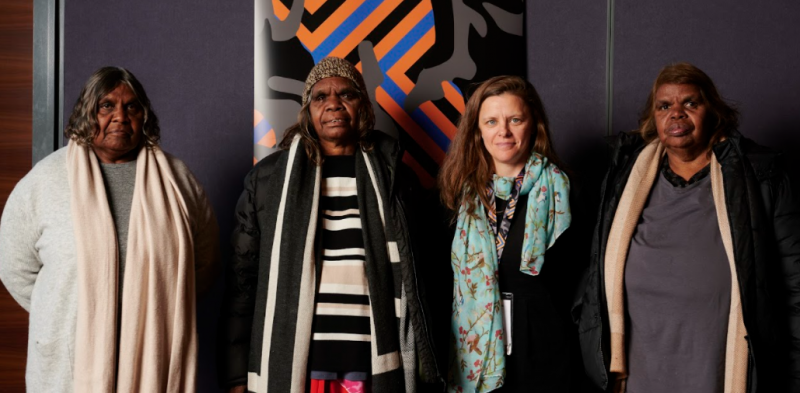NPYWC Directors Nyunmiti Burton, Rene Kulitja & Maureen Baker have all worked within the education system, Nyunmiti is a qualified teacher. The Directors have a very clear idea on important initiatives to increase Anangu engagement with the school system.
The National Dialogue 21 Conference, presented by the Australian Institute for Teaching & School Leadership (ATSL) – was designed to set out standards to improve Indigenous cultural competency in the Australian teaching workforce. Hear what our Directors had to say:

Maureen, Rene, Christine & Nyunmiti at the National Dialogue 21 Conference
Anangu Teachers
Anangu need to be given the chance to lead the classroom. It is not enough to have Anangu in support roles. Anangu teachers are a vital piece of the puzzle in supporting students across language and cultural barriers, understanding the strengths and capacities of individual children. They stand as respected and known members of the child’s community. They know, and can teach bilingual learning.
Curriculum and learning styles
Curriculum needs to be contextually relevant. Providing opportunity for children and young people to learn on country and in the classroom. “Our kids need to learn in their first language and then in English. Then they will be good in Pitjantjatjara and English. Then they can live well in both worlds”, Nyunmiti Burton.
Community Engagement
Key community members want to influence the recruitment and appraisal of key staff such as principals and teachers. They can also care for and educate teachers in the ways of Anangu culture, history and respectful ways to connect with the community, which have a direct benefit for the children and young people.
“Our old people already paved the way forward. When we support Anangu children and young people, everyone benefits”. Rene Kulitja.
Images: courtesy of Australian Institute for Teaching and School Leadership

